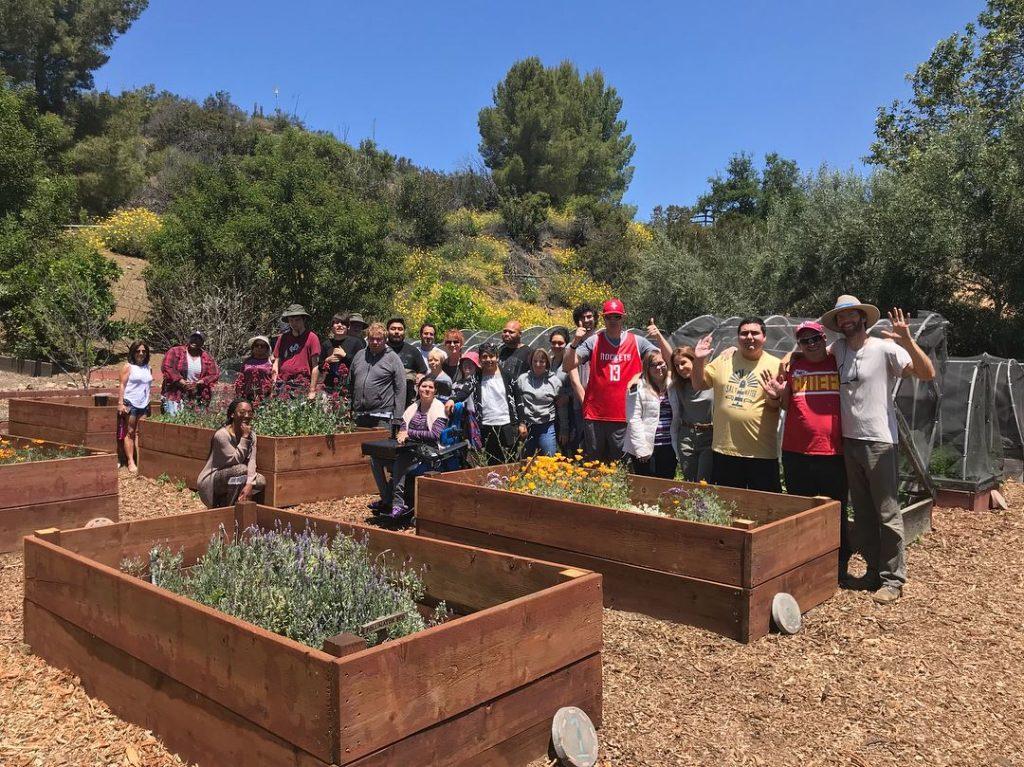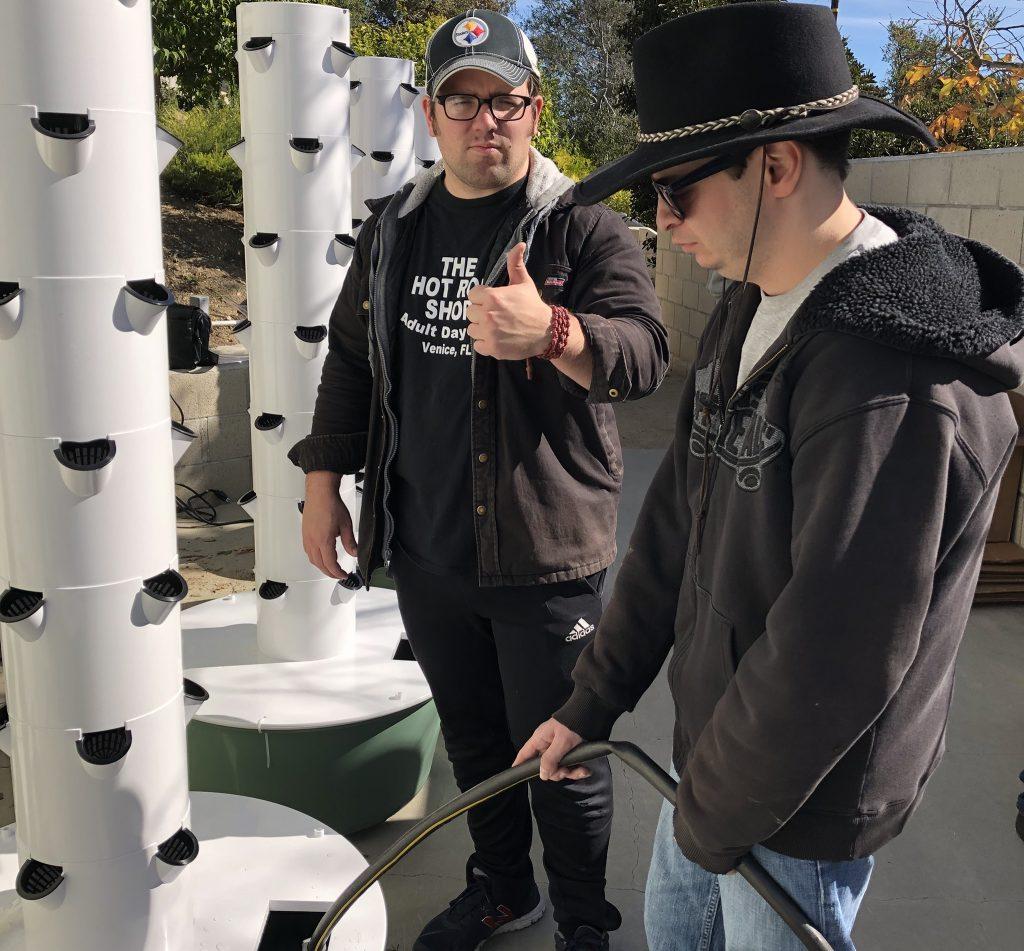
In the path of the Woolsey Fire that devastated our region in November was a unique occupational program, business and social enterprise that, thankfully, is already rising from the ashes.
Shemesh Enterprises is many things to many people. To the farm fellows who work there – all young adults with disabilities – it is a place to earn a paycheck for doing meaningful and interesting work and a chance to be part of a community of people their age of all abilities. To the volunteers and others who work with the fellows, it is an opportunity to be part of a social enterprise and to get to know some amazing people. To its customers, it is a source of delicious locally farmed organic salts, herbs and spice blends.
Shemesh Enterprises is a part of the Shalom Institute, an experiential and retreat center in the Malibu mountains. The entire property was destroyed by the fire, but the endeavor continues. “With adversity comes a lot of opportunity,” says Michelle Cait, director of Shemesh Enterprises. “We’re all in high gear and just moving forward.” Fundraising toward rebuilding the original site is underway, including a GoFundMe campaign. Meanwhile, Shemesh has set up an office at the Malibu Jewish Center and synagogue and they are in the process of setting up garden towers so they can keep their farm fellows employed and keep producing. “We’re in the process now of getting everything up and running at our new site,” says Cait.
Shemesh Enterprises farm fellows are usually ages 18-30 and must be part of a day program in order to participate. There is an interview process to make sure each fellow is a good fit. Fellows have a range of interests and abilities and have several different work modules to choose from at Shemesh. Some work in farming, working the soil and planting and tending the herbs. Others work at the sorting table, sorting the dried herbs. From there, the work proceeds to the kitchen module, “where we’re actually curating and crafting our salts. Those farm fellows love to work with the Cuisinarts and the recipes,” Cait says.
For the organized and meticulous, there is the packaging, shipping and inventory module. There is also a social media and computer module for the tech savvy. And on Sundays, Shemesh Enterprises brings its tent to various farmers markets and festivals. “We have farm fellows who are sales people,” says Cait.

Shemesh Enterprises has garden towers at its new temporary site. 
Shemesh Enterprises products are unique salt and spice blends.
They look at themselves as pioneers in the salt blending business. Farm fellows are included in the branding, marketing, creative, financial and all aspects of the business. “They’re not just doing work that’s menial,” Cait says. “It’s very vibrant.” The farm fellows currently employed by Shemesh Enterprises have been so successful, and like the work so much, that few slots are open. At the time of the fire, the program was poised to expand, but that is now on hold.
In the meantime, there is plenty of opportunity for volunteers of all abilities to participate. It’s part of the program’s mission to include typical young-adult volunteers, because people with disabilities don’t want their social or work spheres to be limited. “What we’re trying to accomplish is a beautiful integration of young adults who have special needs and not,” says Cait. Participants – whether volunteers or farm fellows – need not be Jewish.
Besides volunteering, you can support Shemesh Enterprises by donating to its GoFundMe campaign and by purchasing Shemesh products wherever you see them or at shemeshfarms.com. All proceeds go to support the program, and Cait promises you’ll like using these seasonings. “Nobody has what we make,” she says. “It’s so pure. It has a beautiful texture. Our flavors, our recipes are so unique and so tasty.”
You can also feel good about helping get this unique endeavor back on track so that it can provide meaningful employment and a great place to work for more young adults. “I think what’s so special about our working community is our tone, our spirit and our energy,” says Cait. “I think that’s why it works so well.”
























